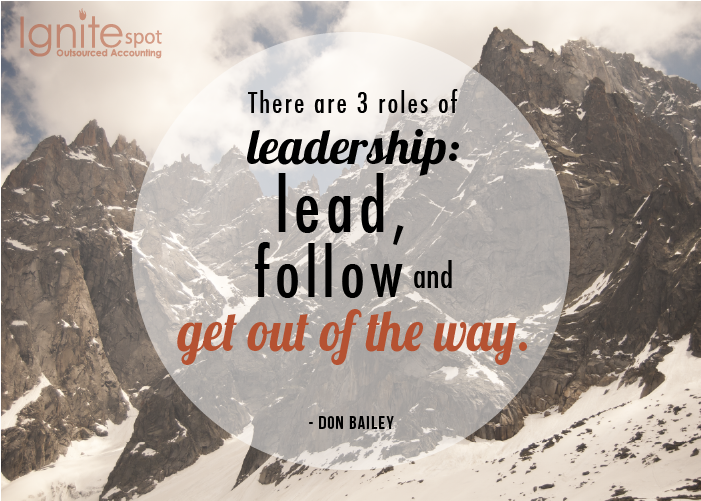
As part of our profit coaching efforts, we try to go beyond number crunching and help clients really grow their business. We weed through a lot of junk on the Internet, but we save the good stuff to share with you. Here's the most insightful and inspiring bits we found on the world wide web this week:
Entrepreneurs:
01. "The 8-Step Battle Plan to Succeed as an Entrepreneur"
Startup mentor, Jason Saltzman, shared his 8-step battle plan to successful entrepreneurship on Entrepreneur.com. This guy is wise beyond his years, having extensive knowledge as a CEO and within the startup community.
The 8 Steps:
- Have thick skin.
- Learn from failure.
- Weed out the negative.
- Be humble.
- Be authentic.
- Listen up.
- Buckle up.
- Save space.
Subscribe to our blog here for more tips for entrepreneurs.
02. Entrepreneurs Need to Stick to Their Integrity--No Matter What
Inc.com shared one entrepreneur's jaw-dropping investment pitch on Shark Tank. He refused to negotiate his integrity, even when faced with losing investment dollars. His story is worth repeating and is chock-full of wisdom. Super inspiring. Super worth the 8 minute watch.

03. What Running a Company with (Almost) Zero Rules Looks Like
CEO Ricardo Semler is not a convenentional business man, living by a principle he calls "terminal days". Twice a week (during regular business hours), he's at the beach or dog-sledding to the north pole. The reason? He's checking items off his bucket list, wanting to climb that mountain now, rather than wait until he's 82. And not only that, but he encourages his employees to do the same! This is just the beginning of some of his revolutionary ideas. To hear them all, listen to his 20 minute TedTalk.
"Many of us have learned how to go to our email on Sunday evening and start working from home. Few of us have learned to go to the movies on a Monday afternoon."- Ricardo Semler
Leaders:
01. Leadership Mistakes to Avoid that Undermine Your Team
CEO of The Purposeful Culture Group, S. Chris Edmonds, pens a personal story of making a mistake. He then goes on to share how mistakes made at the leadership level can impact the entire team. From his perspective, here's the 4 most damaging mistakes leaders make when managing a team:
- Inconsistent communication.
- Lack of clarity of strategy and goals.
- Poor accountability.
- Reward competition instead of cooperation.
Budget-Conscious:
01. Avoid These 5 Common Startup Financing Mistakes
Chances are, if you're starting a business, you'll need financing. Small Business Trends, who've worked with thousands of startups, compiled a list of the 5 most common mistakes startups make when trying to get financing.
- Ownership wasn't established based on credit profiles.
- Lacked planning for credit card usage.
- Treated the 3 Fs (Friends, Family, Fools) like they weren't true investors.
- Credit wasn't treated as an asset.
- Failed to educate themselves about their financing options.
02. Optimizing Your Accounts Payable Strategy
As James Kerr, management consultant for BlumSharipo Consulting, says: accounts payable is boring. But with the current challenging economic times, it's important to tighten up your strategy. Even reexamining the most mundane of activities can provide improvement. Read the full article, on Inc.com, here.
03. Figuring Out How to Pay Top Talent is Getting Trickier
Having a hard time finding the right people? Tim Lowe wrote an article for Harvard Business Review this week that claims a company's approach to compensation might be to blame. Today's job market is rapidly changing with new emerging industries, as well as careers. Many organizations fall behind when their salary practices lack evolutionary change based on industry trends. Lowe proposed four factors that might affect a company's ability to compete for talent:
- An increase in highly specialized jobs and technologic advances.
- Diversifying geological industry conditions makes it impossible to simply factor in a cost of living equation.
- The talent pool now transcends across multiple industries.
- Talented prospectives have increased access to compensation and "worth" information.














.png)


